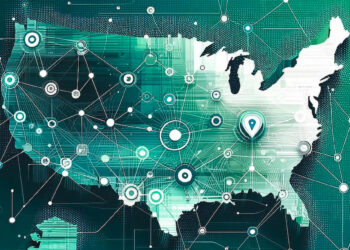
- Image via Wikipedia
The current controversy around Wikileaks can function as a Rorschach test of your attitudes toward a number of topics — political power, authority, control, discretion, judgment, and patriotism. This post isn’t about that necessarily, but it is about how some of the reactions have revealed latent attitudes about new communication technologies and the capabilities they’ve unleashed.
Mitch Joel has an interesting post entitled, “7 Lessons That WikiLeaks Teaches Us.” His lessons include:
- Transparency first. Expect it, respect it.
- You are the media. We are all media entities now.
- Publishing has changed. But our definitions and social norms haven’t.
- Information travels fast. Crisis management goes real-time.
- Decentralization is real. Assange was in prison, Wikileaks continued.
- Anonymity is credible. Content can trump source.
- We are not ready. It’s shocking that we’re shocked.
I would recommend that everyone read Mitch’s post. It’s very good, as are the links and comments.
One of the more insidious aspects of the whole affair is how authorities either used or didn’t use influence to compel VISA, Amazon, PayPal, and MasterCard to put financial pressures on Wikileaks. Instead of breaking the printing presses, the authorities sought to stop the flow of virtual funding and deprive Wikileaks of hosting capacity. These moves riled up a decentralized media channel capable of striking back in an anonymous, fast, coordinated response . The subsequent denial-of-service attacks against these financial and hosting providers underscore how powerful and fast decentralized and anonymous players can be.
Perhaps the reaction of authorities — from governmental officials to the news media to social scolds — is most telling of all, and gets to the point about how shocking it is that they’re shocked. Have these people never hit “Reply All” by accident? Were they never on Napster? Have they not used BitTorrent? Do they not know about DropBox or thumb drives?
It was also interesting to hear reporters struggle to define Wikileaks as anything other than a journalistic enterprise. After all, Wikileaks didn’t contextualize the information, the journalists argue. They just exposed it.
If Wikileaks isn’t a journalistic enterprise, then they’re a new entity upstream from journalists. And, Mr. and Ms. Telegenic Journalist, how does that feel?
Perhaps Point 3 above is the most salient for scholarly publishers — my current stance is that a great deal of counterproductive behavior (salami-slicing research reports, struggling for positive findings, producing papers of little interest, etc.) in our realm comes from the “publish or perish” mentality, yet new forms of publication are not counted toward this. There is currently no academic credit for participating in the world of publishing that’s emerging before our eyes, so we have to force-fit new practices under old labels. We haven’t changed our definitions or social norms.
And perhaps the lesson of Wikileaks is that the activists and inventors won’t defer change until we’re ready for it.
Discussion
5 Thoughts on "Some Lessons From Our Reactions to Wikileaks"
And the increasing americanisation of the digital supply chain now means that Apple has denied its customers worldwide the opportunity – some would argue the right – to download an independent Wikileaks app. That’s democracy for you…
I suspect that one response government will have to Wikileaks is to become less transparent. Having witnessed how easily its internal communications can be exposed, our federal government may start resorting to modes of communication that are less susceptible to exposure. And perhaps some of these will be modes of communication that leave no traces over time, which will then be a real loss to future generations of historians, who will be compelled to rely more upon the self-serving accounts of retired government officials to interpret what really happened. By championing openness, Wikileaks may inadvertently be bringing about change that will result in just the opposite.
Re: “There is currently no academic credit for participating in the world of publishing that’s emerging before our eyes.”
Is “credit” all that it’s cracked up to be? Tenure is the backbone/driver of scholarly publishing, but can we afford to wait while a credit-worthy content is redefined?
Scholarly publishers seeking to stay competitive while the tenure system morphs will need to diversify their value propositions and work towards other kinds of “wins”. As Kent points out, if we stall out (by defining ourselves strictly in the context of credit) we will be contributing to our own undoing. The new world of publishing will continue to turn …
Credit comes in a variety of forms, not just tenure. Hiring, for one example–you can’t worry about tenure until you actually have a job. Funding is another obvious one, the better your publication record, the higher your chances are of securing funding for a project. Attracting top students/postdocs to your laboratory, collaborations, etc.


